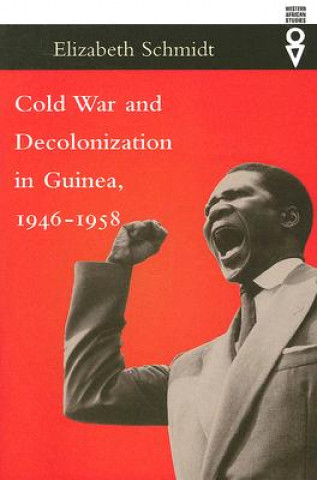
Доставка
Наръчник за пазаруване





Не ви допада? Няма проблеми! При нас имате възможност за връщане в рамките на 30 дни
 Подаръчен ваучер
на всякаква стойност
Подаръчен ваучер
на всякаква стойност
Няма да сбъркате с подаръчен ваучер. Получателят може да избере нещо от нашия асортимент с подаръчен ваучер.
Cold War and Decolonization in Guinea, 1946-1958
 Английски език
Английски език
 110 b
110 b
30 дни за връщане на стоката
Може би ще Ви заинтересува


In September 1958, Guinea claimed its independence, rejecting a constitution that would have relegated it to junior partnership in the French Community. In all the French empire, Guinea was the only territory to vote "No." Orchestrating the "No" vote was the Guinean branch of the Rassemblement Democratique Africain (RDA), an alliance of political parties with affiliates in French West and Equatorial Africa and the United Nations trusts of Togo and Cameroon. Although Guinea's stance vis-a-vis the 1958 constitution has been recognized as unique, until now the historical roots of this phenomenon have not been adequately explained. Clearly written and free of jargon, "Cold War and Decolonization in Guinea" argues that Guinea's vote for independence was the culmination of a decade-long struggle between local militants and political leaders for control of the political agenda. Since 1950, when RDA representatives in the French parliament severed their ties to the French Communist Party, conservative elements had dominated the RDA. In Guinea, local cadres had opposed the break. Victimized by the administration and sidelined by their own leaders, they quietly rebuilt the party from the base. Leftist militants, their voices muted throughout most of the decade, gained preeminence in 1958, when trade unionists, students, the party's women's and youth wings, and other grassroots actors pushed the Guinean RDA to endorse a "No" vote. Thus, Guinea's rejection of the proposed constitution in favor of immediate independence was not an isolated aberration. Rather, it was the outcome of years of political mobilization by activists who, despite Cold War repression, ultimately pushed the Guinean RDA to the left. The significance of this highly original book, based on previously unexamined archival records and oral interviews with grassroots activists, extends far beyond its primary subject. In illuminating the Guinean case, Elizabeth Schmidt helps us understand the dynamics of decolonization and its legacy for postindependence nation-building in many parts of the developing world. Examining Guinean history from the bottom up, Schmidt considers local politics within the larger context of the Cold War, making her book suitable for courses in African history and politics, diplomatic history, and Cold War history.
Информация за книгата
 Английски език
Английски език


 Контакт
Контакт Как се пазарува?
Как се пазарува?

















